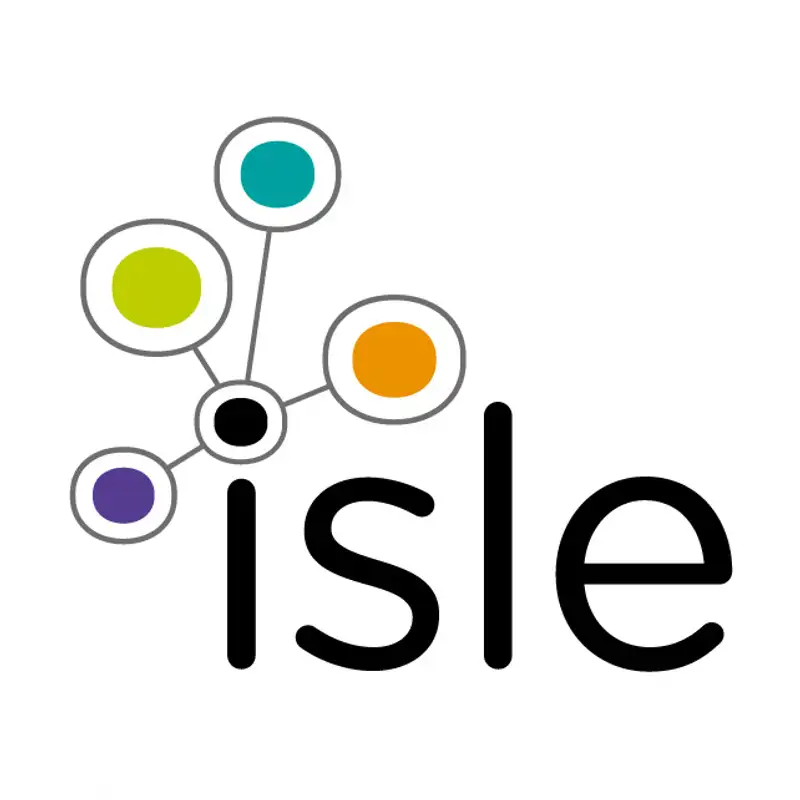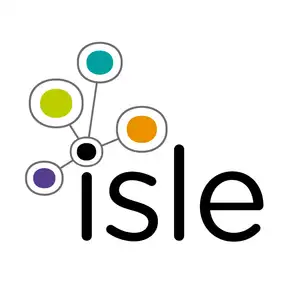
Delivering 'added value' the Portuguese way - with Ana Luis, President, AdP VALOR
[00:00:00] Piers Clark: Welcome to the Exec Exchange 15-minute podcast in which a leader from the water sector shares a story to inspire, educate, and inform other water sector leaders around the globe. My name is Piers Clark and my guest today is Ana Luis, president for Águas de Portugal VALOR. That VALOR bit is particularly important. We'll get to that in a minute, but Ana Luis, wonderful to have you with us.
[00:00:22] Ana Luis: My pleasure.
[00:00:23] Piers Clark: Before we talk about what AdP VALOR is, let's do a little bit about your background. How did you get to the role that you are in today?
[00:00:30] Ana Luis: When I finished my degree I was consulted for 10 years and then I joined EPAL the biggest water supply company in AdP group. In Nepal, I became head of asset management. And then in 2020 I was invited to join the board of Águas do Tejo Atlântico, the biggest wastewater company in the group. And from Águas do Tejo Atlântico, I joined the board of AdP International. And then in AdP VALOR where I am now.
[00:00:56] Piers Clark: Now, anyone who's listened to these podcasts in recent weeks will have heard those two companies you mentioned previously because AdP group has 13 operational companies, of which the biggest one is AdP Atlântico. And a few weeks ago, we heard from the managing director of that business, Nuno Brôco. And then the other company you mentioned there, AdP International, which does the overseas work for AdP. We heard from a director of that business, Andrew Donnelly. Now we're coming to the most exciting company in the AdP portfolio, which is AdP VALOR. And that's the company you are president of. Let's start with, what does VALOR mean?
[00:01:33] Ana Luis: VALOR means that there are ways of generating value, improving the way companies are doing things in the AdP group and also outside the AdP group. Our goal is to leverage efficiency, facilitate the implementation of corporate strategies into the group, but also accelerating innovation and circle economy actions. And these, of course, will not be only inside of the book because circular economy strategies call for interaction with other players outside the book.
[00:02:01] Piers Clark: Okay, so the "VALOR" means "value", and your job, your role is to drive value into all the operational companies, but also to do it for companies that are outside the group. So, you do that as a consultative activity?
[00:02:15] Ana Luis: Yes. Outside the group. Yes. And also, inside the group you could say that.
[00:02:19] Piers Clark: So, you act as an independent third-party knitting things together. Now, one of the questions I'm going to ask you a bit later is, how do you prove that you've added value and how's that metric measured? But before we get to that, let's talk about some examples of the value that you've brought in. So, can you give me a couple of examples of areas where the work you and your team has done has made a tangible impact to the AdP group?
[00:02:44] Ana Luis: Yes. For example, we help our companies to solve common problems in the interface with regulators and building digital solutions to facilitate that interface. For example, now with Urban Wastewater Treatment Directive, we are working with all of the companies to help them fit to the new requirements of the directive, which are really challenging ones. We also develop typified tender documents so everyone can use the same and don't waste too much time on doing those kind of documents. Also, we incorporate strategies. We are working on the reuse of wastewater, climate resilience plans, energy neutrality, and turning sludge into new products for agriculture and helping operationally our companies.
[00:03:30] Piers Clark: So, the value you are bringing is both technical in terms of the engineering solutions that people are adopting, but also commercial. It's around making sure that there's a clear line of sight between the risk that people are taking on in the various contracts that they might sign up with third parties. And I guess the key thing there is, with 13 operational companies, you are avoiding 13 different departments going through the same learning curve, you are able to bring that learning in one neat hit. Now, obviously you've mentioned that you've done it on water reuse and some of the compliance with regulations. You also just briefly mentioned the circular economy. Can you talk a bit more about the circular economy examples that you've brought?
[00:04:09] Ana Luis: Yes, we have a circular economy strategy with many actions. But I would point out this one which is to work with the sludge that is coming out of our wastewater treatment plants. Every day, there are some tracks taking the sludge away from our wastewater treatment plants, and our companies pay a lot of money for operators to do that. And we ourselves in AdP VALOR, we have a license to manage those operations. You have to have a license from the Environmental Agency. And now, we will be the ones that will manage that, and by doing that, we can set the prices for our companies in a manageable way because prices from the operators are really increasing over the last years. And we are working with them. They are implementing investments like hydrosis or solar drying to turn those sludges from waste into new products for agriculture. And we are working also with farmers to find clients to those new products. So, our wastewater treatment plants will become bio-factories. So, they produce energy. Some of them, produce products for agriculture. They treat water, of course, and they produce water for reuse. So really bio-factories.
[00:05:22] Piers Clark: You're essentially operating, along with, not just helping the regulated operational parts of the business move smoother, but you're actually doing some of what a traditional water utility might describe as the non-regulated or commercial activities. In particular, building up the non-core products that might go to agriculture is really exciting stuff. Which will lead to the question of where might that go in the future. But before we get to that, let's come back to the value question. 'cause AdP "VALOR", AdP "value", I'm sure that your board are going how are we measuring the value that we are creating from AdP VALOR? How do you measure the value that you are creating for the portfolio?
[00:06:00] Ana Luis: That's really a very interesting and important question and it's really hard to measure. In this case that I just mentioned, the value that the companies are paying for other operators to take the sludges, sands, and some other waste from the wastewater treatment plants away. We can put the price in it because we are taking some of those wastes to the landfill of one of our companies. So, all the value stays within the group. Our operational companies pay AdP VALOR instead of other operators, and the landfill is from one of our companies. Everyone wins! And we can measure that value; it's tangible. But for example, when we help the group, the companies, to have climate resilience plan and actions, it's difficult to put the price for some shortage of water that you prevent or for water failures in the water delivery. And that really has a huge price. But we cannot quantify.
[00:06:57] Piers Clark: I love this idea that you have some which are quantifiable and some which are unquantifiable and that your board clearly are cognizant of that. They recognize that there will be some very clear quantifiable savings that are made through the better contract management. And then there are these unquantifiable, how do you put a value to a drought that you've been able to mitigate through best practice that have been shared across the operational divisions. And it's really impressive that the board support that. Now, I think it's still quite early days for AdP VALOR, isn't it?
[00:07:26] Ana Luis: This is the fourth year of the company.
[00:07:29] Piers Clark: And were you president from the start? When did you take on this role?
[00:07:33] Ana Luis: I joined the board of AdP VALOR in 2022. So, the first year of the company. And I became the president of the board in 2023.
[00:07:42] Piers Clark: Let's now move to the future. So, you are four years old, it's gone quite well. The board is obviously supporting you and pleased with what you're doing. You've got some nice case studies there. What do you see coming next? What's the next five years going to hold?
[00:07:56] Ana Luis: In some part of our actions, the engineering parts, it's very stable because part of the team was already in AdP. They know very well the operational companies. That part is very established. But the team that is dealing with these new circular economy businesses, that is really new for everyone. So, we are in our learning curve. And so, for the next five years, we want to stabilize that learning curve.
[00:08:20] Piers Clark: I wish you the very best. It's a wonderful organization that you are creating and I love the way that your role is just to drive collaboration and best practice and value for the wider organization. It's inspiring to see. Now let's finish with asking you the question to go back in time and think about what advice would you have given a young Ana Luis when she was 20 years ago and thinking about what she wanted to do next?
[00:08:47] Ana Luis: To be highly engaged with everything that she does, either if it is a small role or a role with higher responsibilities. But, if you are engaged and motivated, you have better outcomes and will engage other peoples and have motivated teams with you.
[00:09:04] Piers Clark: That level of engagement becomes infectious. If you believe in it, then everyone will achieve more. Ana Luis, thank you for your time. You have been listening to the Exec Exchange with me, Piers Clark, and today my guest has been Ana Luis, president for AdP VALOR in Portugal. Hope you can join us next time. Thank you.
